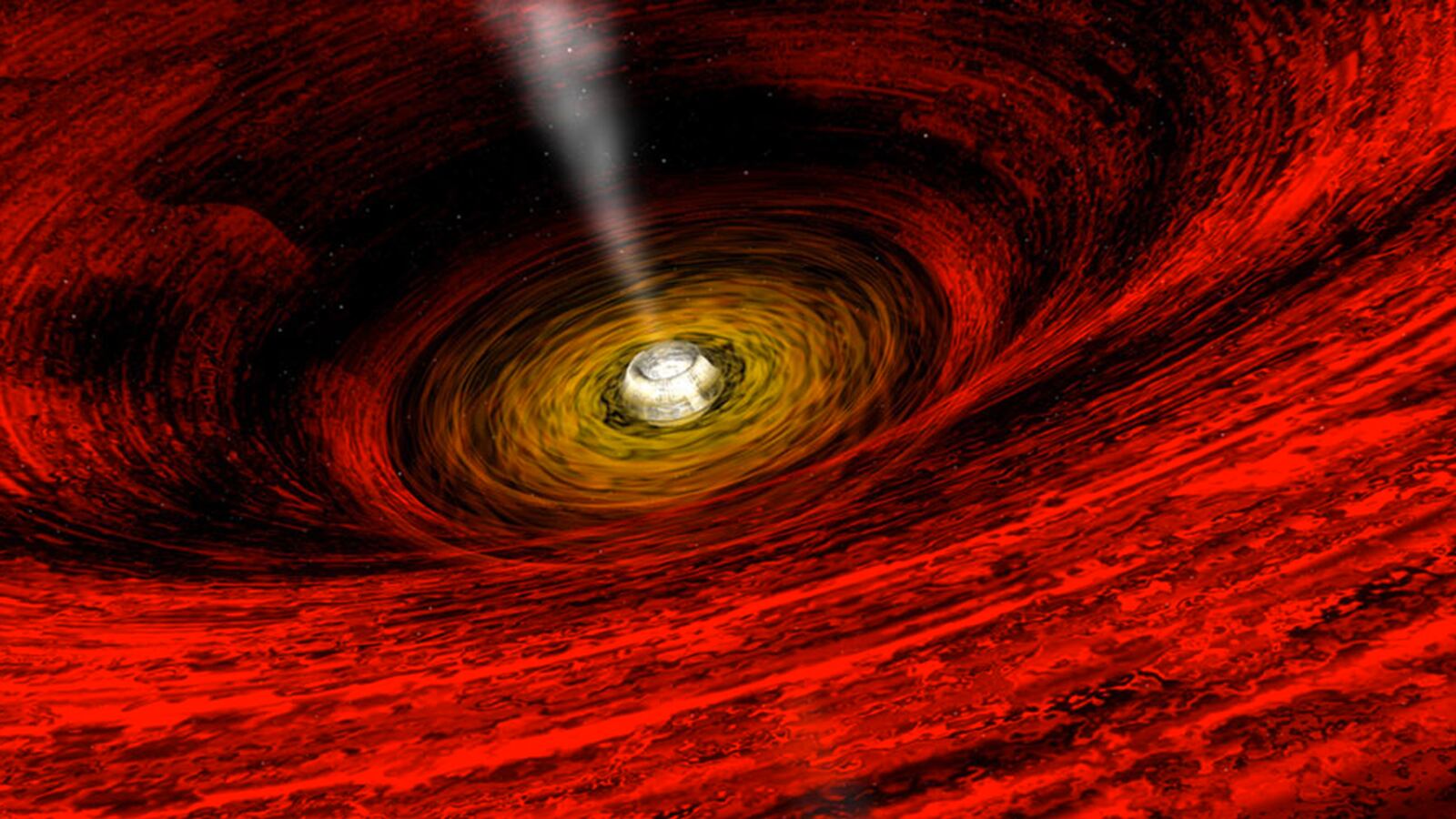Black holes are weird and challenging to our understanding of space and time. For that reason, a lot of people don't like them. A fair number of half-baked theories I get in my email inbox are devoted to either understanding or eliminating black holes, trying to show they don't exist.
But occasionally someone more sophisticated attempts the same thing. The latest is from a pair of physicists, who wrote a paper that they claim contradicts the notion that black holes can ever form. This paper probably would have escaped notice—it hasn’t been peer-reviewed or published in a scientific journal—except that the University of North Carolina at Chapel Hill, where one of the authors works, sent out a press release. As a result, a number of outlets that should know better have picked up the story.
Most calculations of massive stars collapsing into black holes use general relativity, Einstein’s theory of gravitation, which doesn’t include any quantum effects. In the new paper, the authors claim that if you include Hawking radiation, the emission of particles from a black hole’s surface, the extra contribution is enough to stop gravitational collapse and prevent a black hole from forming. I’ll say straight out: I think these results are wrong. However, seeing why is important, and part of the process of science.
Before I get into details, let’s talk about what the paper doesn’t do. First, their simulations fail after the gravitational collapse stops, so they cannot show what replaces a black hole. That’s potentially a huge problem, because astronomers do see objects like black holes, including supermassive specimens at the centers of nearly every galaxy. These objects are too dense and massive to be created by anything other than gravitational collapse, so something has to replace black holes. Secondly, the authors never talk about the Big Bang, so it’s weird that the press release says their work may show the Big Bang never happened.
Gravitational collapse
First off, what is a black hole? Briefly, it’s an object with an event horizon: a boundary defining a point where no object can return to the “outside” once it crosses. The equations of general relativity unambiguously predict event horizons forming if mass is sufficiently concentrated. That’s the key: You and I and the Sun will never become black holes because there’s no way to squeeze us enough.
However, just because a black hole event horizon is allowed doesn’t mean it actually can form in real life. A lot of physicists, including Albert Einstein, thought they could show that for realistic systems, other forces would intervene to stop gravitational collapse before it reached the point of no return. Subsequent work, though, showed that analysis was wrong: Once a critical density is achieved, nothing can stop gravitational collapse. And once matter is inside the event horizon, it continues to collapse until it concentrates at the very center of the black hole, a point known as the singularity. (For more, see Kip Thorne’s book Black Holes and Time Warps, which has a lot of the history of black hole science from a gravitational physicist who witnessed it.)
The gentle glow of a dying black hole
Everything I’ve said so far comes directly from general relativity, but nobody sensible thinks that’s the last word on the subject. Except for gravity, the fundamental forces of nature are described using quantum theory, so it’s logical to think there should be a quantum theory of gravity too. But even more than that: Particles governed by quantum physics are ultimately what create, pass near, and interact with black holes. For that reason, researchers have developed a framework to describe quantum theory in combination with general relativity.
Starting in the 1960s, physicists including Yakov Borisovich Zel'dovich, Jacob Bekenstein, and Stephen Hawking showed that quantum theory-plus-general relativity implied that black holes have entropy and a temperature, which means black holes emit light. Hawking showed how that process works, which is why we call it Hawking radiation.
Hawking radiation for realistic black holes is a minuscule effect, and the bigger the black hole, the less radiation there is. The temperature of Cygnus X-1 from Hawking radiation is roughly a billionth of a degree above absolute zero. That’s much colder than the temperature of the Universe, which is 2.7 degrees above absolute zero. According to the laws of physics, that means a real black hole absorbs more heat from the cosmos than it gives back in the form of Hawking radiation.
Can't stop, won't stop
But this Hawking radiation calculation is for a black hole that’s already formed and is stable. The new paper models the Hawking radiation for a collapsing star before it makes a black hole. (That may sound like a contradiction, since Hawking radiation comes from an event horizon, but it’s a little subtler than that.) According to their calculations, the pressure created by outflowing Hawking radiation particles is enough to prevent gravitational collapse, forcing the dying star back instead of letting it form an event horizon.
The calculations are perfectly correct, as far as I can tell. However, the authors seem to have a lot more Hawking radiation in their model than other similar calculations—and the entire conclusion seems to be based on that large amount. Since the Hawking radiation at any given point in time is small for a realistic stable black hole, there seems to be something amiss. In that assessment, I’m backed up by physicist William Unruh, one of the pioneers of this type of research.
I hesitate to speculate on exactly where the problem is, though after spending some time with the paper I have my suspicions. But here’s the real lesson: When a paper claims to overthrow a well-established concept the first response should be skepticism. Physicists and astronomers have been studying black holes for nearly a century now, and while there’s a lot we still don’t know, those things are far outweighed by what we do understand.
It’s likely this paper will fade from memory, to be replaced by the next one claiming to do away with black holes, and the rest of us will carry on studying the powerful, galaxy-shaping black holes in our beautiful Universe.





